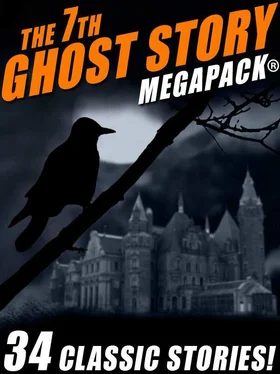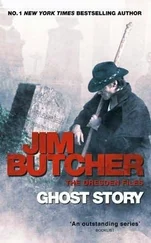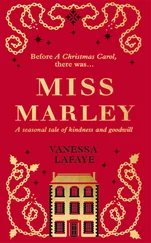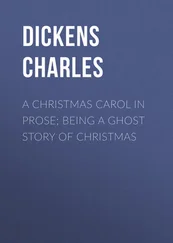“I didn’t give you permission to stay indefinitely.”
“I’m sorry. It was such a nice afternoon, and I was with Cousin Kelly.”
Father looked up angrily and slapped the arm of his chair with the flat of his hand.
“Cousin Kelly again! However did the child get started on this thing? When did she ever even hear of Kelly?”
Mother must have heard Father’s outburst, but she gave no sign of it. Her expression had changed suddenly to the cold and stony one which warned that she had at last had all of something that she could stand, and had determined to resolve a problem, no matter how unpleasant the resolving might be. Her voice, as if in compensation, was softly fraught with dreadful reasonableness.
“You did not see Cousin Kelly,” she said. “You did not see Cousin Kelly this afternoon or any other afternoon, because Cousin Kelly is dead. He was dead and buried, Teresa, before you were born.” Teresa heard the words, of course, but they had no higher meaning. They did not prick her intelligence or elicit an emotional reaction. How could Cousin Kelly be dead when she had just parted from him in the park?
“I saw him this afternoon,” she said, “and I’ll sec him again tomorrow. I see him every Saturday and Sunday.”
“The child has a morbid imagination, that’s all,” Father said. “She needs professional attention. Tell me, Teresa, what docs Cousin Kelly look like? Describe him for me.”
“He is about as tall as you,” Teresa said, “but much thinner. He has very light hair that looks silver in the sun, and he has blue eyes that laugh. On one cheek he has a scar that sometimes you can hardly see.”
Father looked stunned for a moment, and Mother caught her breath with a sharp gasp.
“She’s seen a picture somewhere,” Father said. “She’s surely seen a picture.”
“This must stop!” Mother’s voice still held that dreadful reasonableness, her face the expression of grim decision. “Listen to me, Teresa. Cousin Kelly is dead. He is dead because I killed him. It was an accident, a tragic accident, and it happened years ago. We had taken an outing in the country, Kelly and I and our parents. We had gone to a place high on a bluff above a river. Kelly and I had quarreled. I was furious with him. I wanted to be alone, and I walked away from the others to the edge of the bluff, but Kelly followed. He came up beside me and took me by the arm and started to say something. I turned and jerked my arm free. I don’t know what happened exactly. I must have pushed him without thinking or meaning to.” Mother’s voice was silent, the horror of that remote moment invoked again by the telling, and then it went on quietly and quickly, as if to be done as soon as could be. “He was standing at the edge of the bluff, and he fell over. He was killed. He was dead when my father and my uncle reached him. They always blamed me, my aunt and uncle—Kelly’s mother and father. They still do. They thought I pushed him deliberately in a fit of anger. But it was an accident. That’s all it was, Teresa. It was a terrible accident, and Cousin Kelly is dead.”
Teresa turned and walked away to the far end of the living room. Turning again, she looked back at Mother and Father.
“Cousin Kelly is alive,” she said, “and he is coming soon to live with us here.”
She went on into the dining room, passing from view. Ahead of her, beyond the louvered swinging door to the kitchen, she heard Hannah at work. She pushed through the door and saw that Hannah had deserted her cleaning paraphernalia long enough to prepare cocktails. The silver shaker was on a tray on the cabinet, and beside the shaker were two fragile, long-stemmed glasses. Hannah looked hurried and harassed. It was after five, and she was obviously anxious to be away by six.
“Let me take the tray, Hannah,” Teresa said.
“I’m sure I’d be grateful to you for saving me the steps.” Hannah said. “Mind you don’t spill it, missy. Watch where you’re going.” Teresa took the tray and pushed back through the louvered door into the dining room. In the pocket of her yellow jumper, the love potion felt as heavy as gold dust.
It was all over, everything done that needed doing, and everyone gone who had been there except a worn and rather seedy little man and Teresa and Hannah. The man spoke with gentle weariness in a tone of futility.
“Now, Teresa,” he said, “tell me again exactly where you got the pois—the ‘love potion’.”
“Cousin Kelly gave it to me. We were in the park.”
“Why did Cousin Kelly give it to you?”
“It was supposed to make Mother and Father love him. Then he could come and live with us here.”
“Your mother and father didn’t love Cousin Kelly?”
“No.” She paused, a shadow passing across her eyes, as if she were struck for a moment by a presentiment of wonder. “Mother said that Cousin Kelly was dead.”
“I know.”
“She said he died years ago. He fell off a cliff. But he wasn’t. Dead, I mean. I was in the park with him this afternoon.”
“And you met your neighbor there? What is her name?”
“Mrs. Carter. She was rude to Cousin Kelly. He was standing right there, holding my hand, and she ignored him.”
“Are you sure she saw him?”
“How could she have helped? He was standing right there .”
“Mrs. Carter told me that you were alone when she saw you. There was no one with you at all.”
“I don’t understand it.” Again the shadow passed over her eyes. “He was holding my hand, and later he gave me the love potion.”
“All right.” The little policeman stirred uneasily. He was feeling, for some reason, a chill in his bones. “Last Sunday it rained. You couldn’t go to the park, and so Cousin Kelly visited you here. Isn’t that what you told me?”
“Yes. He came right up to my room. He was there all afternoon.”
“Poor little dear.” Hannah reached an arm toward Teresa as if to brush from the child the gathering shadows of evil. “She has been alone too much. She lives in fantasy.”
“You are certain that no one came last Sunday?”
“There was no one here but the family and me. No one. The hall door is kept locked on the inside. No one could have entered without being admitted.”
“Do you think that Mrs. Carter would deliberately lie about not seeing Cousin Kelly in the park?”
“No.”
“Do you think your mother would have lied about his being dead?”
“No.”
“Do you think Hannah would have lied about his not being here last Sunday?”
“No.”
“There you are, then.” Leaning forward, he spoke slowly with a kind of dreadful reasonableness, and every tired syllable was an echo of his dread and a measure of his futility. “Listen to me, Teresa. You must tell me exactly where you got the love potion. It’s very important.”
And she met his dreadful reasonableness, as he had known she would, with dreadful innocence.
“Cousin Kelly gave it to me. In the park. He was there .”
GHOST OF BUCKSTOWN INN,
by Arnold M. Anderson
Taken from Twenty-Five Ghost Stories (1904).
Several travel-worn drummers sat in the lobby exchanging yarns. It was Rodney Green’s turn, and he looked wise and began his tale.
“I don’t claim, by any means, that the belief in ghosts is a general thing in Arkansas, but I do say that I had an experience out there a few years ago.
“It was late in the fall, and I happened to be in the village of Buckstown, which desecrates a very limited portion of the State. The town is about as small and dirty a place as ever I saw, and the Buckstown Inn is not much above the general character of the place. The region is inhabited by natives who still cling to all sorts of foolish superstitions. The inn, in the ante-bellum days, was kept by one who was said to be the meanest and most crabbed of mortals. The old demon was as miserly as he was mean, and all his narrow life he hoarded his filthy lucre with fiendish greed. Report had it also that he had even murdered his patrons in their beds for their money. What the facts actually were I don’t know, but even to this day the old inn is held in suspicion. A lingering effect of former horrors still clouds its memory.
Читать дальше












